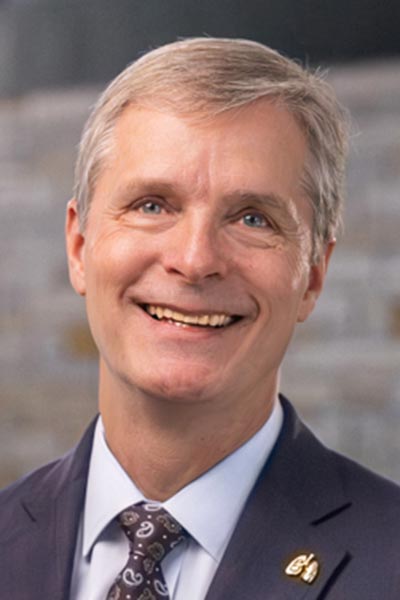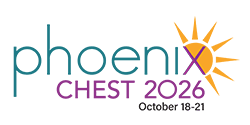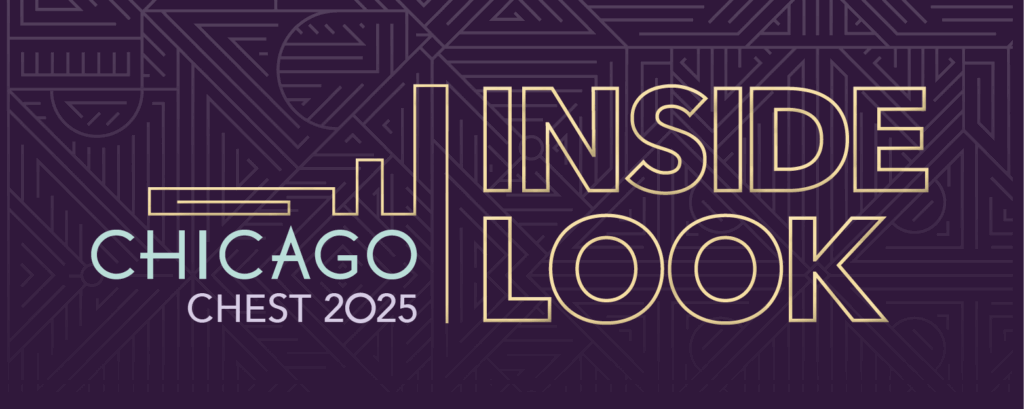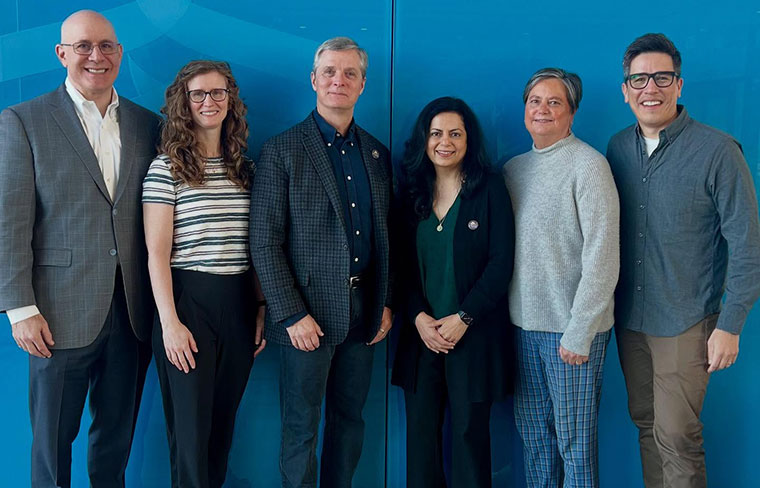
It’s ironic that CHEST President John Howington, MD, MBA, FCCP, attended his first annual meeting in “The Big Easy.”
He had been invited to CHEST 1997 in New Orleans as a co-moderator. However, when the senior moderator had travel issues, Dr. Howington found himself leading the session on his own—just four months out of fellowship.
It wasn’t the low-pressure introduction to CHEST that he might have hoped for, but getting to that point hadn’t been easy either.
Dr. Howington was born in Nashville, Tennessee, the youngest of eight. He was raised by a single mother with a minimum wage job, and no close male family members had finished college, let alone become a thoracic surgeon as he eventually did.
“I grew up in a blue-collar community. They had their own struggles, but they took time to support little John Howington,” he said.
He found another supportive community at his first CHEST meeting where he made lifelong friends and connected with CHEST leaders who encouraged him to stay involved.
Over the years, Dr. Howington has served on the Scientific Presentation and Awards Committee, the Interventional Chest Diagnostic Procedures Network, Thoracic Oncology Network, Council of Networks, Scientific Program Committee, and the Membership Committee. He has been President of the CHEST Foundation (now CHEST philanthropy), Chair of the Finance Committee, and a Regent-at-Large. He is now the 87th CHEST President.
“Trust me, when I finished my training, I had no perception of myself being president of a national association,” he said. “I was just thrilled to be at the meeting, to be invited to co-moderate. And the rest is just people—leaders opening the door for others, paying it forward.”
Dr. Howington has also contributed to multiple editions of CHEST’s lung cancer clinical practice guidelines. He was an author for the first set of stage II non-small cell lung cancer (NSCLC) guidelines published in 2003, as well as updated stage I and II NSCLC guidelines published in 2007 and 2013. This past summer, he led the publication of the newest early-stage NSCLC guideline, which had been in the works for years. The new guideline and its 17 recommendations can be found on the journal CHEST® website.
Dr. Howington’s term as CHEST President has coincided with unprecedented headwinds in science and health care, but his focus has remained firmly on patients and the organization’s mission. He has been energized, he said, by recent treatment advancements—in not only lung cancer but also asthma, COPD, and other diseases.
“There’s so much information coming at us now. It’s challenging to process,” he said. “That’ll be part of CHEST’s role for our members in the future—to take in that vast amount of knowledge and give it back to our members in a package that’s usable in their day-to-day practice so their patients will benefit.”
Dr. Howington has been encouraged by the positive momentum within CHEST since the outbreak of the COVID-19 pandemic. The organization’s current membership and resources better reflect today’s multidisciplinary teams, he said, while record numbers of early career clinicians have attended recent annual meetings and submitted abstracts.
As he wraps up his presidential term, Dr. Howington hopes to maintain an outward focus, support the next generation of clinicians, and go the extra mile when called upon—just as he did three decades ago at his first annual meeting.
“My goal is to inspire people to remember why they got into this field to begin with,” he said. “Remember yourself as a bright-eyed medical student—the white coat ceremonies, that excitement and enthusiasm. Recognize the incredible advancements in medicine and science. And allow that to replenish you when you’re tired. If you maintain that focus on others, you can overcome more obstacles than you anticipate.”
The journey ahead
CHEST President John Howington, MD, MBA, FCCP, answers five questions about the present and future of CHEST.
What are the three most important issues in chest medicine?
First, substantial funding cuts for medical research, which will have a compounding effect over time, stalling the great advances in science that lead to cures like those achieved with cystic fibrosis. Second, significant cuts to Medicaid, which negatively impact vulnerable patient populations, including critical access and the rural hospitals that care for them. Third, lack of federal government support of proven vaccines to reduce infectious respiratory illness.
How does CHEST membership help medical professionals navigate these issues?
CHEST works in partnership with like-minded health care associations to advocate for our members and the patients they care for in their practices. CHEST is a trusted source of the best evidence for optimal patient care in chest medicine.
What is CHEST doing to make an impact in the coming decade?
CHEST continuously works to innovate and improve its educational materials to meet the needs of all providers of chest medicine. There is an ever-increasing depth and breadth of new medical knowledge that one individual cannot assimilate alone. CHEST works to prioritize and package that information for our members so they feel confident they are providing state-of-the-art care for their patients.
What is CHEST doing to protect and nourish the incoming workforce?
We offer educational products to meet the needs of varied learning styles. We offer traditional in-person educational sessions like Board Review and the CHEST Annual Meeting. In addition, we offer online access to those events, as well as to additional educational tools like the CHEST SEEK® Library, CHEST Curriculum Pathways, and CHEST MedCast. We also offer hands-on simulation courses at our headquarters in Glenview, Illinois.
What are CHEST’s goals leading up to its centennial in 2035?
CHEST should be the go-to source for the entire team of providers, not just physicians, in the chest medicine space. Care of patients with chest diseases is a team effort, and we are the association dedicated to providing the best, cutting-edge education to the whole team.

Call for Topics Is Open
Feeling inspired by all the great sessions in Chicago? Help shape the curriculum for CHEST 2026, October 18 to 21 in Phoenix, by submitting topic ideas from areas you’re passionate about, topics affecting your practice, or new technologies you’d like to learn more about. The submission deadline is Tuesday, December 2, at 2 pm CT.



